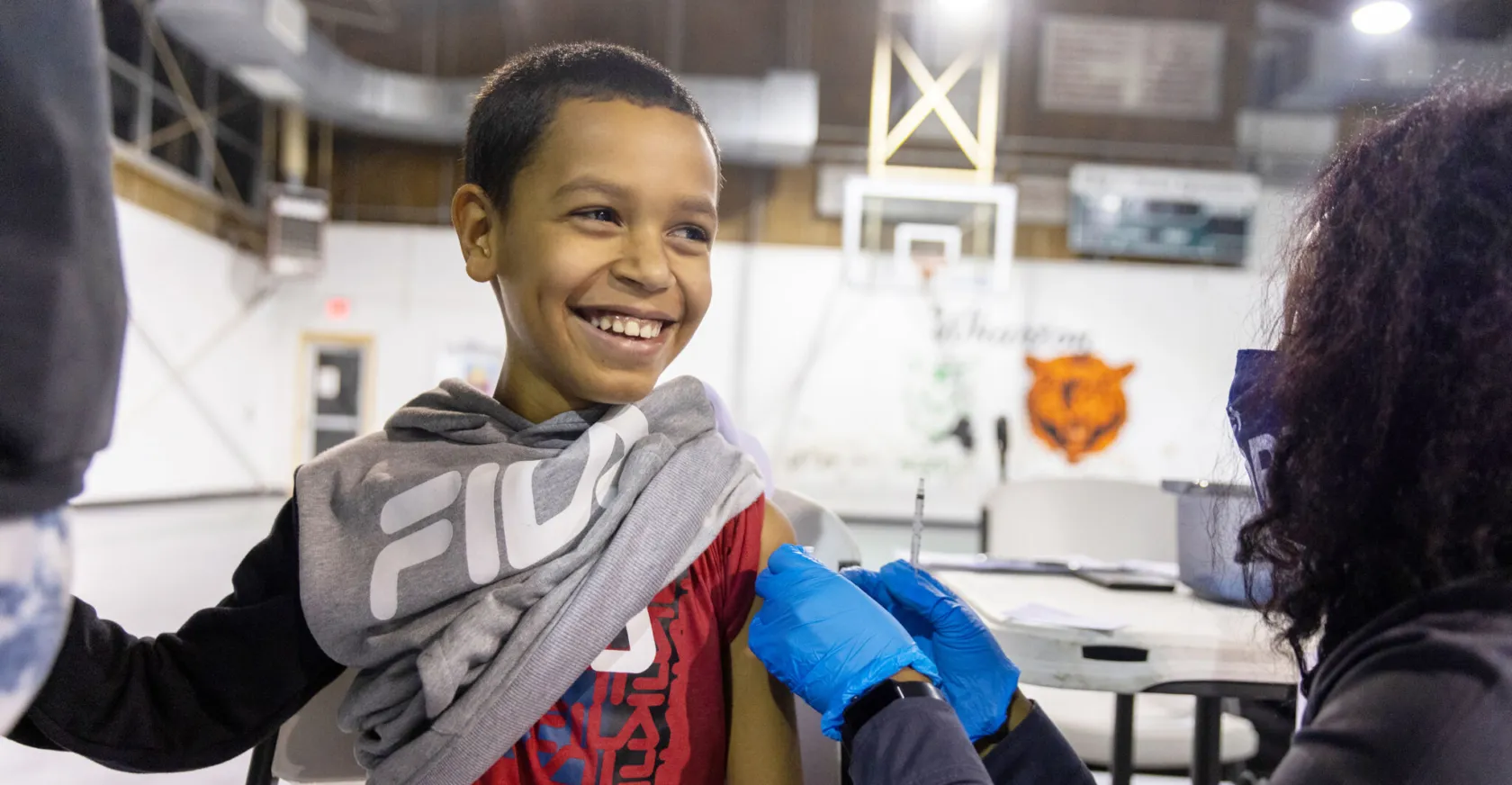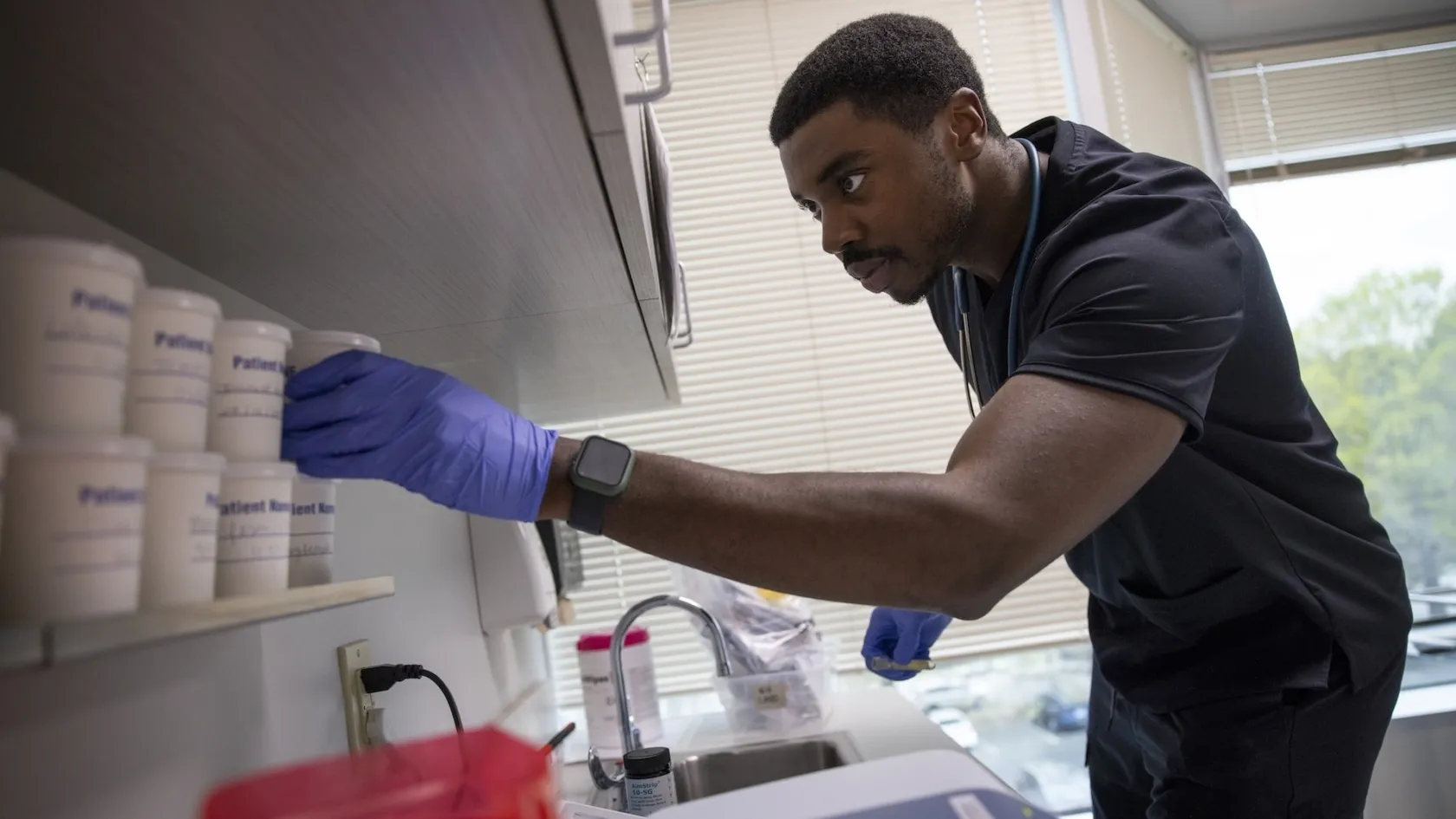

Infectious Diseases
Combatting infectious diseases like HIV, tuberculosis, measles, COVID-19, and malaria
Our Approach
Project HOPE’s infectious disease programs prioritize the needs of communities and target populations by strengthening health systems and equipping local health workers with the skills, tools, and resources they need to build sustainable solutions that have a lasting impact.
To prevent, detect, and help manage infectious diseases, our team works with health workers and the communities they serve to:
- Expand screening and testing services in underserved communities
- Improve access to care, treatment, and support services for people living with infectious diseases
- Strengthen infection prevention, surveillance, and case management within existing health care systems
- Provide comprehensive support services for people living with infectious diseases including mental health and psychosocial support
- Improve vaccine equity by increasing vaccine access and community health workers education and engagement
The Context
There is no solution to the global health crisis without first addressing the growing threat of infectious diseases.
As the leading cause of death in low-income countries — and a major contributor to preventable deaths in every country — infectious diseases like tuberculosis (TB), measles, multidrug-resistant TB, respiratory conditions, HIV, malaria, cholera, and COVID-19 are an urgent threat.
That’s why Project HOPE takes a localized approach that considers the unique needs, challenges, and strengths of each community and pairs all infectious disease programming with other work that strengthens the overall health system for the long term and leads to even greater gains in global health.












